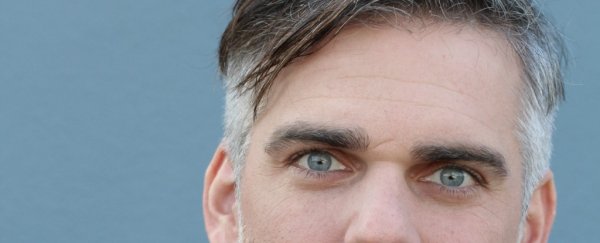You were enjoying an otherwise normal day when you spotted it it the bathroom mirror: a grey hair. It stands out like a weed in a sea of carefully-groomed grass.
Silently, you admonish yourself: It's the stress! I shouldn't have let it get to me!
You've probably heard that you can stave off the appearance of grays in your mane by keeping stress levels low.
In that case, I've got some good and bad news: It's bogus. Stress has little to do with your silver locks.
In reality, genetic factors appear to play the strongest role in determining when your hair begins to lose its colour.
"For the vast majority of people, graying hair is not down to something you have done, but to genetic factors beyond your control," Nina Goad of the British Association of Dermatologists told the BBC.
Wondering how this persistent myth came to be? You can blame mice.
Several studies in rodents have suggested a link between stress and the appearance of grey hairs. One study in 2011 even suggested that long-term exposure to stress, which has been shown to affect our DNA, could tweak the genes that give our hair its hue.
And a 2009 study suggested that the reason hair loses its colour is because as we get older, we produce less and less of a special protective protein that buffers the hair against a natural process of bleaching from within.
Luckily, mice aren't people (and most of them are grey already anyway).
There's little research to support the idea that the findings from those studies happen in humans.
"There is no evidence to link the onset of graying to stress, diet or lifestyle," Rodney Sinclair, a
University of Melbourne professor of dermatology wrote in a post for The Conversation.
So, if you're worried your grays are the result of your stressful life, this is one less thing to worry about.
This article was originally published by Business Insider.
